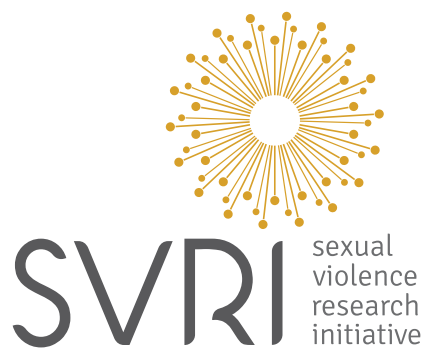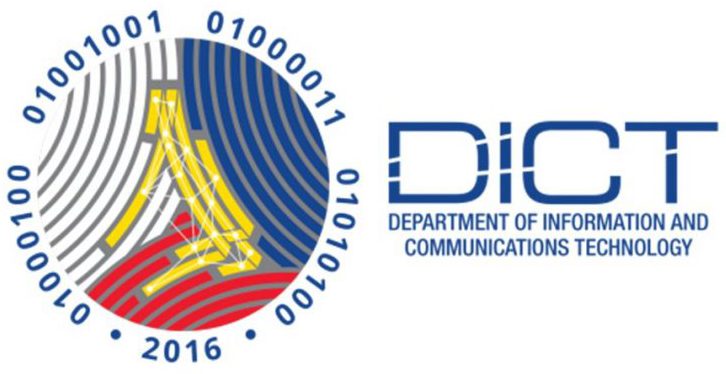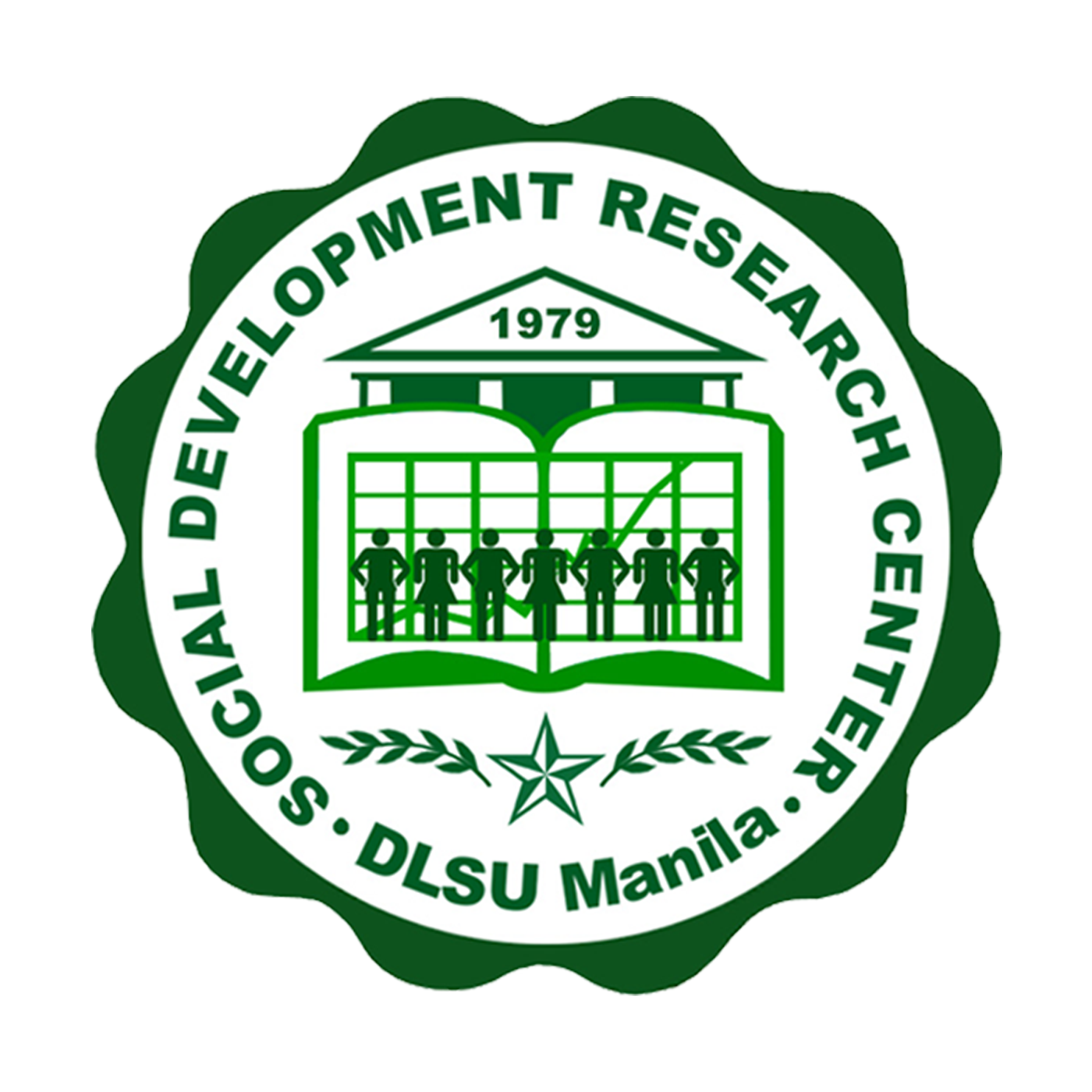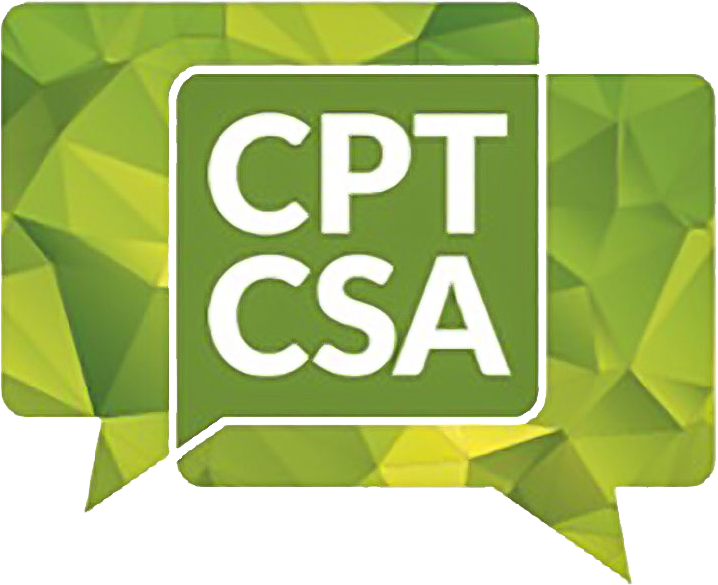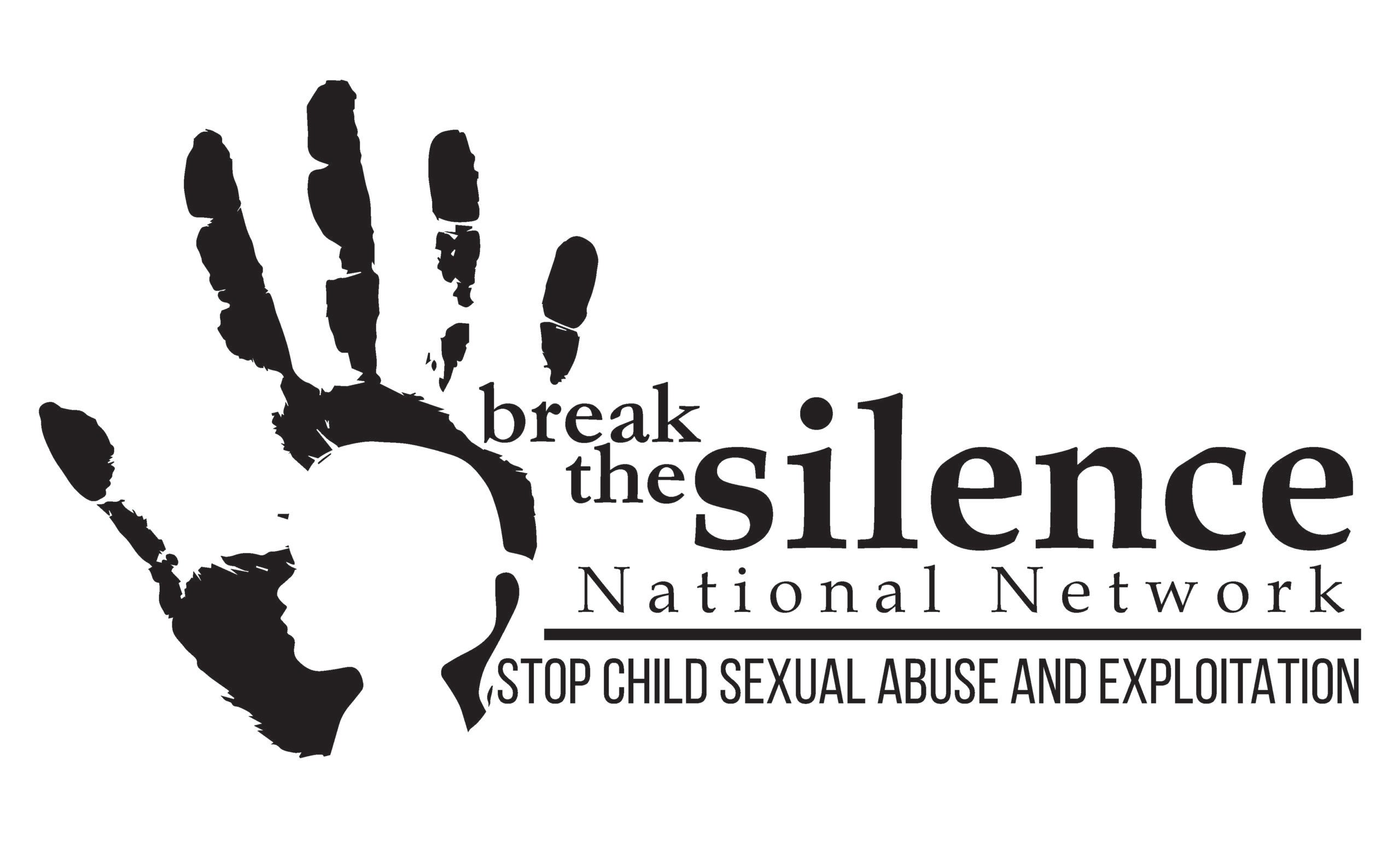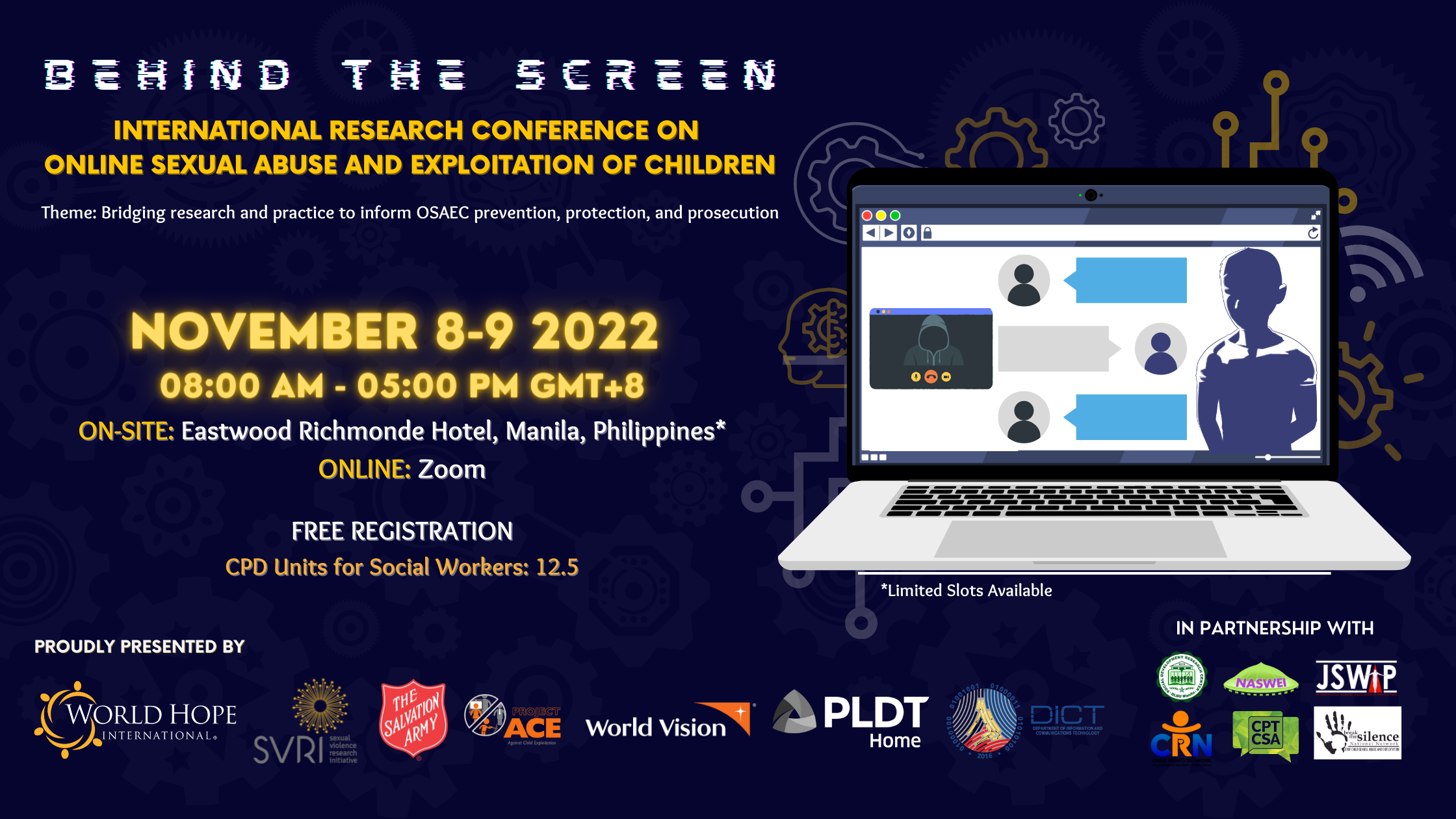
EVENT | PHILIPPINES
Behind the Screen: International Research Conference on Online Sexual Abuse and Exploitation of Children
Dates: November 8-9 2022, 08:00 AM – 05:00 PM GMT+8
Mode: Hybrid – Online and In-Person
Venue: Eastwood Richmonde Hotel, Manila, Philippines
Conference registration fee: Free for all
Behind the Screen starts in
Day(s)
:
Hour(s)
:
Minute(s)
:
Second(s)
Digital technology has ushered in great advances in society, but it has also introduced new threats and crimes that prey on vulnerable children. As the number of individuals utilizing the internet grows, a new form of trafficking known as Online Sexual Exploitation of Children (OSEC) is emerging with the Philippines being the global epicenter since 2016. During the early months of the pandemic in May 2022, the Department of Justice (DOJ) revealed that reports of online sexual abuse and exploitation of children (OSAEC) increased three-fold in the Philippines from March to May 2020 compared to the same period in 2019. To add to the alarming situation, child sexual abuse materials (CSAM) do not stay on the deep web anymore. During the pandemic, it was found that videos and photos containing sexual abuse of children were being sold on social media and messaging applications for as low as PHP 100.
The pandemic restrictions may have already eased in 2022 but the economic conditions resulting from COVID-19 remain as more Filipinos are found to be unemployed (3.27 million) and underemployed (6.81 million) by December 2021. The Philippines’ struggle to manage the health crisis was made more challenging by typhoons striking the country compounding the health, economic, psychosocial, and protection consequences on the population. Given these prevailing factors, the vulnerability of Filipino children remains to be very high.

[PRESS RELEASE] Fighting Online Sexual Abuse and Exploitation of Children with Research: The Behind the Screen International Conference
Digital technology has ushered in great advances in society, but it has also introduced new threats and crimes that prey on vulnerable children. Join us at the Behind the Screen Research Conference to combat online sexual abuse and exploitation of children.
Description of the event: The worsening situation for Filipino children calls for evidence-based practices that should inform the prevention of, protection from, and prosecution of OSAEC. It will be beneficial to stakeholders to understand the status of and gaps in existing practices on prevention and protection measures, as well as the prosecution process of OSAEC. With this information, we can gain more support to improve the quality of care and services to the child survivors and their families. To update OSAEC protection actors on the new empirical data available, a research conference will gather researchers from different disciplines to share their research findings.
Overall objective: To share scientific findings on existing prevention, protection, and prosecution practices and advocate for policy changes based on empirical data.
Theme: Bridging research and practice to inform OSAEC prevention, protection, and prosecution.
Day 1 – November 8, 2022 (Tuesday)
The Factors Affecting the Prevalence of Online Sexual Exploitation of Children in Camarines Sur, Philippines
PRESENTERS: Ma. Vida Teresa O. Sales, PhD & Russ Daniel O. Baldoza, RSW, MSSW | Bicol University – College Of Social Sciences & Philosophy Social Work Department
PRESENTATION: 9:45 am – 10:00 am GMT+8
Read Prevention Abstract
The Factors Affecting the Prevalence of Online Sexual Exploitation of Children in Camarines Sur, Philippines
Authors: Tania L. Añonuevo, RSW, MSSW; Russ Daniel O. Baldoza, RSW, MSSW; Cherry M. Dycoco, RSW, MSSW; Joselynn M. Niñofranco, RSW, MSSW; Myrna A. Pereyra, RSW, MSSW; Ma. Vida Teresa O. Sales, RSW, Ph.D. and Angelo C. Uclaray, RSW, MSSW | Bicol University – College Of Social Sciences & Philosophy Social Work Department
Culture generally affects people’s attitudes and acceptance toward using available technology. Conversely, available technology can change the culture of people who utilize it. This study attempted to determine the family and community factors and their unintentional contribution to the prevalence of Online Sexual Abuse and Exploitation of Children (OSAEC). This also explored the community’s perception of OSAEC.
Utilizing a qualitative research design, the study conducted focus group discussions and key informant interviews to gather relevant data and provide in-depth analysis from the study site. Based on thematic analysis, poor parental disciplinary practices, children’s early exposure to gadgets, lack of parental regulation and unsupervised use of technology, and availability of the internet were the family factors that may contribute to the prevalence of OSAEC. In terms of community factors, the poor socio-economic conditions, limited functionality of community mechanisms and structures to protect and uphold children’s rights, and limited knowledge of child’s rights may have contributed to OSAEC prevalence. Lastly, the community people were aware of the reported OSAEC incidence but were not sufficiently informed about its nature.
The findings imply the need for preventive strategies and measures, such as education campaigns, advocacies, and capacity-building initiatives for parents, community leaders, and other stakeholders. This would strengthen the role of the parents and leaders in upholding children’s welfare, particularly in preventing online risks.
Community Perspectives on Online Sexual Exploitation of Children: A Study Examining Existing Knowledge and Awareness in Select Areas in the Philippines
PRESENTERS: Alberto C. Marin & Raji J. Alvarado | World Vision Development Foundation
PRESENTATION: 10:00 am – 10:15 am GMT+8
Read Prevention Abstract
Community Perspectives on Online Sexual Exploitation of Children: A Study Examining Existing Knowledge and Awareness in Select Areas in the Philippines
Author: World Vision Development Foundation, Inc.
Online sexual exploitation of children (OSEC) is gaining considerable attention in the international sphere, with partnerships formed between countries and between non-government organizations to effectively combat OSEC (see IJM, 2020 and Terres de Hommes,2013). Such multi-country and multi-sector collaborations underscore the changing dynamics of human trafficking and the nature of response needed to combat the crime, where OSEC offenders are comfortably sitting in their homes, located oceans away from the exploited children. However, facilitation of the crime also happens within homes where facilitators are, unfortunately, the child victims’ parents, relatives, or even neighbors who all occupy a significant position in the children’s circle of trust (Ramiro et al., 2019).
This research focuses on the experience of select particular, it examines (i) the efforts of the government (from national to local) and other key stakeholders to prevent and address online sexual exploitation and identify gaps and key challenges in implementation; (ii) communities’ awareness of online sexual exploitation, including their perceptions of their role in reporting online sexual exploitation to authorities; and (iii) communities’ awareness of the existing structures and mechanisms in place to respond to and report cases of online sexual exploitation in their communities.
This research covered Taguig City in Metro Manila, and Lapu-Lapu City and Cordova municipality in Cebu province and employed a combination of quantitative and qualitative methods, particularly household surveys and focus group discussions (FGDs) to map the existing knowledge of communities on OSEC and their assessment and awareness of existing community mechanisms and structures to prevent and report this crime. Overall, 611 children and 618 adults or parents participated in the survey, 179 participated in 31 focus group discussions, and 12 key informants from different line agencies mandated to address OSEC were interviewed for the research. (ii) communities’ awareness of online sexual exploitation, including their perceptions of their role in reporting online sexual exploitation to authorities; and (iii) communities’ awareness of the existing structures and mechanisms in place to respond to and report cases of online sexual exploitation in their communities.
Overall, the data suggests that adults were well aware of the issue of OSEC. They mainly draw their information about OSEC from traditional media and news reports on television. Also, the school was among the children’s top sources of information on OSEC, which means that the issue is already being discussed within the confines of the classroom. The findings also show that very few adults and children were aware of community-based programs and interventions that address OSEC. Children and communities are also reported to have low awareness on where they can report cases of OSEC.
This research report brings specific attention to the views and understanding of children, parents, caregivers, and local-level stakeholders on the prevention of online sexual exploitation of children (OSEC). The results of this research could help to ensure that the voices of communities, especially children, are at the center of stakeholder discussions on how we can better address OSEC in the Philippines.
Role of Local Self-Governments in the Prevention of Online Sexual Abuse and Exploitation of Children: A Case from Rural Haryana, India
PRESENTER: Ankit | University of Wroclaw, Poland
Presentation: 10:15 am – 10:30 am GMT+8
Read Prevention Abstract
Role of Local Self-Governments in Prevention of Online Sexual Abuse and Exploitation of Children: A Case From Rural Haryana, India
Author: Ankit | University of Wroclaw, Poland
Cross-region marriages in rural Haryana, India are those that break away from the traditional boundaries of caste, culture, language, distance, and even religion within India. These are not “love marriages” but rather “arranged” taking a woman completely away from her family, region, and cultural contexts. Women in these unions are vulnerable to constant violence and abuse and are often at the mercy of their husbands. Children of such unions are specifically targeted by their peers and other society members for their ‘differentness’ and ‘low social value. They are not ‘accepted’ by their own societies. For such children, online sexual abuse and exploitation in the form of name-calling, harassment, and exclusion in public spaces from their peers or other society members due to their ‘lowness’ can be life-threatening.
Based on qualitative fieldwork of two months and biographical narrative interviews of adult children of cross-region marriages in the Mahendragarh district, this paper makes a strong case for the elected local self-governments (or Gram Panchayats) in rural Haryana to prevent online sexual abuse and exploitation of such children. Goal 16 of the 17 Sustainable Development Goals (SDGs) envisions peace, justice, and strong institutions to promote peaceful and inclusive societies and provide access to justice for all with an end of abuse, exploitation, trafficking and all forms of violence against and torture of children being it’s one of the targets. These rural institutions can ensure well-being and prevent violence and abuse of all children by being participatory, inclusive, and more democratic at all levels involving more such women from cross-regional families, cooperating with self-help groups of women and advocating special initiatives.
First findings from a study of the pathways to the facilitation of Online Sexual Exploitation and Abuse of Children (OSEAC) in the Philippines
PRESENTERS: Maggie Brennan | Dublin City University & Melvin Jabar | De La Salle University – Social Development Research Center
Presentation: 10:30 am – 10:45 am GMT+8
Read Prevention Abstract
First findings from a study of the pathways to the facilitation of Online Sexual Exploitation and Abuse of Children (OSEAC) in the Philippines
Authors: Brennan, Maggie; Byrnes, Elaine; Munns, Nicole; Katz-Wisel, Gabriel; Jabar, Melvin; Collado, Zaldy and Tarroja, Maria Caridad | Dublin City University, Justice and Care, and De La Salle University – Social Development Research Center
The Philippines has been described as the “centre of child sex abuse materials production in the world” (UNICEF, 2016) and as “the global epicentre of the live stream sexual abuse trade,” in which many victims are children (Brown, 2016; Gill, 2021). A recent study by the International Justice Mission (2020) found that the majority of OSEAC cases (87%) involved at least one female trafficker; this is a unique presentation in crimes involving sexual abuse and exploitation of children, which are most commonly perpetrated by males, and without financial transactions
Nevertheless, limited research has examined the facilitation of OSEAC by Filipino nationals, which routinely features female facilitators and financial remuneration for sexual activity involving children. This substantial gap in our knowledge of OSEAC offending severely limits our ability to develop strategies and interventions for better detection, interception and prevention. Using the Ecological Model (Bronfenbrenner, 1979), this study examines OSEAC facilitation in the context of the mesosystem level of Filipino and global culture, laws and governance and experience. It seeks to understand the different individual, familial, community, social, institutional, and technological factors that motivate offenders to facilitate online sexual exploitation.
Findings indicate that facilitators are predominantly trusted women adults, including mothers. Engagement in OSEAC is financially motivated and is regarded as transactional. The facilitators themselves explore potential perpetrators. There is a bi-directional dependence between facilitators and survivors. Familism plays a major role in grooming. Family dysfunction, technological lag in detection, and innovation in ICT were likewise seen as OSEAC-facilitating factors. The findings suggest the need to prioritize offender conviction, regulate financial institutions, educate children about relationships and sex education, and invest in rural areas for economic development. Overall, the findings call for the need to look at OSEAC not just as a criminal issue but also as a public health issue.
Online Intimate Partner Violence among Teens and Young People in Nepal
PRESENTER: Preeti Maharjan | ChildSafeNet – Nepal
Presentation: 10:45 am – 11:00 am GMT+8
Read Prevention Abstract
Online Intimate Partner Violence among Teens and Young People in Nepal
Authors: Preeti Maharjan, Tulasha Khadka, Sneha Agrawal, Pushpa Joshi, and Anil Raghuvanshi | ChildSafeNet – Jawalakhel, Lalitpur, Nepal
Intimate partner violence (IPV) is the most common form of violence against women. According to a 2017 report of the Overseas Development Institute, unmarried adolescent girls were more vulnerable to IPV as romantic relationships become more common in Nepal.
The objectives of this study are to assess and understand the context, practices, and behaviours of teens and young people towards IPV using digital technology and provide appropriate policy recommendations to the government and other duty-bearers.
A mixed method combining quantitative and qualitative data was used. The preliminary findings of 4,040 surveys (1139 children aged 16-17 years and 2901 participants aged 18-24 years), 5 in-depth interviews and 17 focus group discussions will be included here.
The self-administered survey among 4,040 participants from 10 districts in Nepal found that one in four teens and young people aged 16-24 years who are in a relationship or were in a relationship previously has experienced at least one form of online intimate partner violence. The most prominent form of online IPV was swearing and yelling via audio/video calls (11.5%) followed by obsessively monitoring online (11.4%), controlled access to the internet (8.6%), and receiving sexual messages when you do not want to receive it (6.5%). Teenagers and young people who participated have heard about online IPV, however, most of them were not aware of the various forms and impacts of online IPV. They connected online IPV with emotional abuse such as blackmailing and the mental health impact of online IPV. Teenagers perceive sharing passwords as the building block for trust in dating relationships. They are not aware of the available support system and who to contact if s/he or anyone close to them experiences online abuse.
Recommendations:
- To improve policies, reporting mechanisms, and outreach activities related to online IPV
- To increase the capacities of service providers to respond to IPV, using a victim-centered approach
- To raise awareness on prevention and protection from online IPV, report cases and access services at the school and community level
Developing a Remote Counseling Treatment Manual for OSAEC Survivors: Pandemic Driven Research
PRESENTER: Maria Caridad H. Tarroja, PhD | De La Salle University
Presentation: 1:30 pm – 1:45 pm gmt+8
Read Protection Abstract
Developing a Remote Counseling Treatment Manual for OSAEC Survivors: Pandemic Driven Research
Authors: Balajadia- Alcala, Ma. Araceli; Simon, Patricia; Tarroja, Maria Caridad and Villegas, Agnes | De La Salle University
The pandemic brought unique challenges for the practice of counseling in terms of delivering timely and relevant interventions to vulnerable populations who are in dire need of these. One such vulnerable group are OSAEC Survivors.
This paper reports the findings from the first of 2 Phases that the author and her team undertook to develop an evidence-based remote counseling protocol for this population. Doing a thorough desk review and Key Informant interviews, the team adopted a comprehensive framework found to be appropriate for addressing the issues and concerns of OSAEC survivors.
Key findings which formed the basis for developing a comprehensive treatment manual will be outlined in the report, specifically: profile of survivors, needs and issues unique to OSAEC survivors, and evidence-based interventions given the previous two.
Mental Health Profile and Impact of Trauma Interventions among OSAEC Survivors
PRESENTER: Adesty Dulawan-Ting, RPsy | World Hope International
Presentation: 1:45 pm – 2:00 pm GMT+8
Read Protection Abstract
Mental Health Profile and Impact of Trauma Interventions Among OSAEC Survivors
Authors: Clark, Haley; Dulawan, Adesty; Lucena, Lyka; Macugay, Philip Joel, Sequitin, Rosario; and Tarroja, Maria Caridad | World Hope International and University of the Southern Philippines Foundation
The internet increasingly became a breeding ground for Online Sexual Exploitation and abuse of Children (OSAEC) with the Filipino children being one of the most at-risk globally. This study aims to describe the mental health profile of OSEC survivors during the time of the pandemic. Likewise, the study looks into the impact of some forms of interventions in reducing trauma symptoms. There were 89 OSAEC survivors in the study of which, 63 are females and 26 are males with mean age of 12. Majority of the survivors (70.79%) were perpetrated family members (immediate and relatives) while some of them were by community perpetrators(4.05%) and a few who engaged independently (.04%). The Psychological Trauma Questionnaire and Child Behavior Checklist were used to profile and assess progress of the survivors in the intervention.
Findings show that the mean trauma level of the survivors (37.5) before any intervention is within the normal range and does not significantly differ across gender, age, and type of perpetrator. Comparatively, significant differences were found in some behavior scales across developmental ages with older age group (15-17) scoring the higher compared to the younger groups. Analysis of impact of the interventions showed that for the OSEC survivors in the control group, there is no significant difference in their pre-test and post-test scores rather, the trauma symptom means score increased from 30.75 to 35.81. For the OSEC survivors who received interventions the trauma score means significantly decreased from 34.12 to 23.55.
Generally, OSAEC affects survivors’ mental health most dominantly on their internalized experiences. Trauma focused interventions showed promising impact in improving trauma levels as opposed to no interventions. It is recommended that developmentally appropriate mental health programs and policies be embedded in the aftercare services to facilitate recovery of survivors.
Review of Therapeutic Care for Survivors of Online Sexual Exploitation in the Philippines
PRESENTERS: Mary Angeline A. Daganzo, PhD & Kimberly Kaye C. Mata, Ms, RPm, RPsy | De La Salle University – Social Development Research Center
Presentation: 2:00 pm – 2:15 pm GMT+8
Read Protection Abstract
Review of Therapeutic Care for Survivors of Online Sexual Exploitation in the Philippines
Authors: Daganzo, Mary Angeline; Mata, Kimberly Kaye and Tarroja, Maria Caridad | De La Salle University – Social Development Research Center
In studies and reports conducted on online sexual exploitation of children, among the gaps identified in existing knowledge is on the aftercare and rehabilitation services. In the Philippines, aftercare and rehabilitation services appear to be a mix of programs developed explicitly for OSEC as well as more general therapies designed for trauma. But it is not yet well documented what the different programs are and what the experiences are of the service providers during the actual implementation.
This qualitative study aimed to produce a comprehensive description and a critical analysis of the aftercare and rehabilitation services. In-depth interviews were conducted with key informants from select government agencies and non-governmental organizations involved in the provision of therapeutic care in the case management of survivors of OSEC in Luzon, Visayas, and Mindanao. A thematic analyses of the interviews showed that various programs and services are provided addressing the needs of the survivors in different aspects of their lives, including psychological, medical, educational, spiritual, and even a recreation of home life. A trauma-informed approach was commonly used and care was often tailored based on age and gender. Challenges and facilitating factors in the provision of therapeutic care were also identified.
The findings are expected to have implications for continuing implementation of said programs, development of new services and programs, and further policies and laws on OSEC and wider issues on child protection and wellbeing.
Lived Experiences of Care Providers in Residential Facilities Handling OSEC Survivors during the Pandemic
PRESENTER: Dean Rosario Sequitin | University of Southern Philippines Foundation
Presentation: 3:15 pm – 3:30 pm GMT+8
Read Protection Abstract
Lived Experiences of Care Providers in Residential Facilities Handling OSEC Survivors during the Pandemic
Authors: Clark, Haley; Dulawan, Adesty; Lucena, Lyka; Macugay, Philip Joel and Sequitin, Rosario | World Hope International and University of the Southern Philippines Foundation
Little is known about the life and challenges of care providers or social workers in the residential care facilities during the pandemic. The paper explored the lifeworld of care providers or social workers handling OSEC survivors in residential care facilities during the COVID-19 pandemic.
Qualitative phenomenological approach using in-depth interviews of 10 social workers from two different regions (Luzon and Visayas) were conducted. Using thematic analysis, several themes evolved:
(a) the social workers experienced helplessness, frustration, and burnout from more workload;
(b) they had improved relationships with the OSEC survivors,
(c) they learned and adopted to new ways of delivering case management services,
(d) they found HILOM and trauma-informed care trainings, mentoring, and coaching to be helpful,
(e) they were able to observe emotional, behavioral and thought processes manifestations of the survivors, and (f) they observed that the therapeutic interventions improved the survivors interpersonal skills, emotional regulation, and academic performances.
Despite the challenges and limitations brought about by the COVID-19 Pandemic, the social workers in the residential care facilities remained resilient and committed to their work for the recovery of the OSEC survivors under their care. Therapeutic interventions were effective as observed in the behavioral changes demonstrated by the OSEC survivors while in the centers.
Lived Experiences of Non-Perpetrating Family Members of OSEC Survivors during the COVID-19 Pandemic
PRESENTER: Philip Joel Macugay, PhD | University of Southern Philippines Foundation
Presentation: 3:30 pm – 3:45 pm GMT+8
Read Protection Abstract
Lived Experiences of Non-Perpetrating Family Members of OSEC Survivors during the COVID-19 Pandemic
Authors: Clark, Haley; Dulawan, Adesty; Lucena, Lyka; Macugay, Philip Joel and Sequitin, Rosario | World Hope International and University of the Southern Philippines Foundation
Family dynamics is a vast field of study. Knowledge about family dynamics is a valuable tool for helping professionals working with families.
The paper explores the family dynamics of the OSEC survivors’ families during the COVID-19 pandemic and pinpoint factors that might have some bearing on why family members got involved in OSEC. It also delves into their feelings about the OSEC phenomenon, their insights and lessons learned from their experiences during the Pandemic.
It is anticipated that findings of the study will help improve interventions for the prevention and management of OSEC. Qualitative phenomenological research design was used. Ten (10) non-perpetrating family members of the OSEC survivors were interviewed using an in-depth-interview guide. The research participants came from the Luzon and Visayas regions.
Thematic analysis was conducted and the following themes surfaced:
(a) the Pandemic is a serious factor making children vulnerable to OSEC,
(b) family is adversely affected by COVID-19 economically and socially driving them to engage in OSEC,
(c) contrasting effects of OSEC on family relationship dynamics: stronger bonds versus fragile relationships and trauma,
(d) betrayal by the people the child and his or her family trusted,
and (e) variety of reactions of family members to the OSEC phenomenon: shock, anger, frustration and depression.
The study reveals that the families were gravely affected by the Pandemic. This made them more vulnerable to OSEC. Lack of knowledge of family members and OSEC survivors about OSEC caused adverse reactions and trauma that needs to be addressed.
Experiences of Female Adolescents on Online Sexual Abuse and Exploitation during Community Quarantine in Davao City
PRESENTERS: Maria Teresa Dela Rosa, MSSW, RSSW & Shaira S. Udin | Ateneo de Davao University – College of Social Work
Presentation: 3:45 pm – 4:00 pm GMT+8
Read Protection Abstract
Experiences of Female Adolescents on Online Sexual Abuse and Exploitation during Community Quarantine in Davao City
Authors: Balug, Juvill; Dela Rosa Maria Teresa; Lopez, Sheryl; Manapol, Melba; Marian, Erika Grace and Udin, Shaira | Ateneo de Davao University – College of Social Work
The study sought to describe the experiences of female adolescents, ages 15 to 17 years old as victim-survivors of Online Sexual Abuse and Exploitation of Children (OSAEC) during community quarantine in Davao City. .The study’s design was descriptive-qualitative particularly phenomenological research. Using a purposive sampling the team interviewed eleven female adolescents, three barangay officials for key informant interviews, and conducted a focus group discussion among the identified agencies with direct services for OSAEC.
The study describes poverty as the major driving factor that leads female adolescents in Davao City to engage in OSAEC. This situation was further exacerbated when COVID lockdown happened resulting to loss of jobs, limited mobility and uncertainty. As a consequence, the respondent’s family had difficulty sustaining their daily needs, pushing victim-survivors to engage in OSAEC. Limited mobility, caused many of the respondents to shift to online platforms as substitute for physical communication, further raising their vulnerability to online sex predators. Respondents were introduced to OSAEC through seemingly harmless online chat groups but eventually led to pimping and matching with potential perpetrators. The chatgroups paved way to new acquaintances with experience in online sexual transactions and pushed victim-survivor to the trade in hopes of gaining financial rewards. Sexual behavior online eventually lead to physical interaction with local perpetrators. The study further revealed that barangay officials have little knowledge and capability in handling OSAEC cases.
OSAEC in its many forms continue to victimize children, more so when several factors create vulnerability in them such as: naivety, peer pressure, distorted perspectives on filial obligations, minimal awareness and proactive action from duty bearers. As we strive to protect the youth from all forms of sexual abuse, there is a greater challenge in providing a holistic, multi-disciplinary and multi-sectoral action among duty bearers to further stop OSAEC.
Study on Intervention Strategies for the Rehabilitation and Reintegration of Child Victims / Survivors of Online Sexual Abuse & Exploitation in the Philippines
PRESENTERS: Vimala Crispin, Atty. Marie Michelle Quezon & Faye Alma Balanon | UNICEF, Child Frontiers, and PST CRRC
Presentation: 4:00 pm – 4:15 pm GMT+8
Read Protection Abstract
Study on Intervention Strategies for the Rehabilitation and Reintegration of Child Victims/Survivors of Online Sexual Abuse & Exploitation in the Philippines
Authors: UNICEF, Child Frontiers, and PST CRRC
The Philippines has emerged as a global center of online sexual abuse and exploitation of children (OSAEC), with 80% of Filipino children vulnerable to online sexual abuse. According to the Disrupting Harm household survey, 20% of internet-using children aged 12 –17 were victims of grave instances of sexual exploitation and abuse in 2021. The 2017National Study on OSAEC in 2017 highlighted how the rescue, investigation and trial processes can negatively affect child victims and have a profound impact on their psychological well-being, sense of safety and control, and view of the world. The study recommended additional research be conducted to map and assess current OSAEC intervention models and services available to support child victim/ survivors.
The present study builds upon existing evidence on OSEAC and triangulates these findings with the perspectives of service providers to identify strengths, weaknesses and challenges in service delivery for OSAEC victims / survivors, as well as strategies to ensure interventions deliver improved outcomes for children and their families. The methodology involved semi-structured interviews with 80 service-providers from four sub-national locations with significant number of OSAEC cases reported, and an online survey that generated 3,267 responses from frontline service-providers.
The study identified several important findings and questions with significant implications for OSAEC service provision. There may be a need to reconceptualize the current approach to service provision to align with the perceptions and needs of child victim/survivors who may actively resist help or are not confident that the outcomes will be in their best interest. The current emphasis on prosecution of offenders can have important implications for children involved especially when harm occurs within the family setting. There is a critical need to facilitate prevention of problems and harm before they occur, as well as proactively engage with children, families and communities long before cases are formally reported or enter the legal system. For services, programmes and prevention strategies to be truly effective and beneficial, it will be essential to consult directly with children, young people and families who have experienced OSAEC to understand what would work best from their perspective.
The study concludes with recommendations for an integrated continuum of approaches and services for OSAEC victim/survivors —from prevention, identification, reporting, rescue, trial, rehabilitation, reintegration — with emphasis on prevention, as well as ensuring appropriate reintegration and after care support. This will require a reprioritization of existing approaches and greater collaboration among government and NGO stakeholders, as well as the private sector, to achieve more positive outcomes for children and families in the Philippines.
Day 2 – November 9, 2022 (Wednesday)
Online Sexual Exploitation of Children (OSEC) Survivors’ Functioning After Reintegration in the Philippines
PRESENTER: Megan Scroger | Robert Wesleyan University
Presentation: 8:45 am – 9:00 am GMT+8
Read Protection Abstract
Online Sexual Exploitation of Children (OSEC) Survivors’ Functioning After Reintegration in the Philippines
Authors: Draper, Rebecca and Scroger, Megan | Robert Wesleyan University and World Hope International
This research study examines the outcomes for Filipino survivors of online exploitation of children (OSEC), a form of abuse where child sexual abuse content and pornography is shared via the Internet. The Philippines is currently identified as an area where the creation and distribution of this content are prevalent ( World Hope International [WHI], 2019).
Survivors of childhood sexual abuse are likely to experience adverse mental health effects, such as increased depression, anxiety, aggression, substance abuse and misuse, interpersonal difficulties, disordered eating, suicidal behavior and self-harm, and posttraumatic stress disorder (PTSD; WHI, 2018).
Currently, there is little to no empirical research available that explores the psychosocial functioning of OSEC survivors after experiencing shelter-based care and subsequent reintegration into the community. Consequently, this study aims to identify the relationship between the self-reported symptoms of trauma and psychosocial functioning among Filipino youth that have experienced OSEC.
This study utilized inclusion criteria of survivors between ages 12 and 18 (and their guardian) who have received residential care for OSEC and have been subsequently reintegrated into the community for at least one year (N=48). In addition to providing demographic data, participants completed the Psychological Trauma Assessment Questionnaire (PTAQ), Youth Self-Report (YSR), and Child Behavior Checklist (CBCL). The Mann-Whitney U, Kruskal-Wallis, and Kendall’s Tau correlational tests were utilized for data analysis.
Preliminary results suggest that the number of people and children in the household, and relationship to the perpetrator all are positively related to higher reports of OSEC survivor’s symptoms. Additionally, small to moderate positive relationships were found between survivor report of trauma symptoms on the PTAQ and internalizing problems on the YSR.
Limitations and implications for future research and practice will be discussed, and potential recommendations regarding policy and supporting the needs of the OSEC survivors will be provided.
Reintegrated Survivors of Online Sexual Exploitation of Children: Phenomenologizing their Regaining of Morale and Confidence
PRESENTERS: Jeremiah Opiniano & Alvin Jacob II | University of Sto. Tomas
Presentation: 9:00 am – 9:15 am GMT+8
Read Protection Abstract
Reintegrated Survivors of Online Sexual Exploitation of Children: Phenomenologizing Their Regaining of Morale and Confidence
Authors: Cayubit, Ryan Francis; Jacob, Alvin III and Opiniano, Jeremaiah | University of Sto. Tomas and World Hope International
Online sexual exploitation of children (OSEC) suddenly rose in the Philippines since 2020, perhaps induced by mobility restrictions due to the COVID-19 pandemic, and by heightened economic hardship. After efforts were made to rescue children and adolescent victims, survivors face challenging circumstances in their return to normal activities (i.e., reintegration). Regardless how severe their previous experiences were, these children and adolescents exert efforts to regain their morale and confidence after the OSEC experience. On that score, what does it mean for these survivors to regain their morale and confidence while returning into normalcy?
This phenomenological research strives to surface the meanings ascribed to these OSE survivors’ morale and confidence. The research team implemented object-centered interviews (OCIs), asking eight OSEC survivors from the Philippines to doodle and explain what does regaining morale and confidence mean to them. A two-part instrument was employed: a robot foto (profile sheet) and an aide memoire (interview guide) that included instructions on making a doodle on morale and confidence. Apart from the eight children, their adult caretakers were also interviewed on their efforts to reintegrate survivors.
Authors then employed phenomenological reduction with the aid of thematic analysis to both the doodles and the interview answers. The conduct of OCIs provided a respectful, therapeutic means to let OSEC survivors bellow out their ways to move forward.
Key Factors that Constitute an Effective Assessment Center for OSEC Victim-Survivors in the Philippines
PRESENTER: Marie Joy Pring | Asia-Pacific Nazarene Theological Seminary
Presentation: 9:15 am – 9:30 am GMT+8
Read Protection Abstract
Key Factors that Constitute an Effective Assessment Center for OSEC Victim-Survivors in the Philippines
Authors: Chinta, Neseta; Evangelista, Isaiah; Palosa, Sarah; Pring, Marie Joy and Saraf, Shradha | Asia-Pacific Nazarene Theological Seminary
The information on Online Sexual Exploitation of Children in the Philippines is scant, but even more scarce is the information on the aftercare for rescued children. This research was commissioned to gain knowledge on what OSEC victim-survivors go through in the aftercare continuum and to identify key factors that make an assessment center effective for them. The mixed-methods design and multi-phase approach of this study involved in-depth interviews and focus group discussions with 11 OSEC victim-survivors and 21 service providers, as well as a survey, participated in by 128 service providers from all over the country.
Aspects unique to the findings of this study is understanding OSEC from a Filipino worldview and looking at how the Filipino culture can help shape an effective assessment center. Among the findings of key factors include psychological interventions, care and guidance from center staff, activities for self-development, and adequate facilities in the center.
Finally, the research found out that an effective assessment center is one that works on increasing the individual protective factors of the children. Skills deemed significant to start developing in the OSEC victim-survivors are self-mastery skills (anger management, self-control, and emotional intelligence, positive self-concept, self-compassion, a sense of personal responsibility, being future-oriented) and relational skills (ability to form positive bonds and connections, interpersonal communication, self-efficacy in conflict situations, and problem-solving).
In toto, these factors that emerged from the children’s data, as well as the service providers’ data, are corroborated by studies and findings of experts on aftercare around the world. This research is the evidence that if they are heard, the OSEC victim-survivors can be empowered agents who have the ability to lead us in navigating through their journey to healing and restoration.
Best Practices in Case Management of Child Sexual Abuse and Their Suitability to Online Sexual Exploitation of Children
PRESENTERS: David Wilkinson & Mellanie Olano | International Justice Mission- Australia
Presentation: 9:30 am – 9:45 am GMT+8
Read Protection Abstract
Best Practices in Case Management of Child Sexual Abuse and Their Suitability to Online Sexual Exploitation of Children
Author: Wilkinson, David | International Justice Mission – Australia
Case management is the principal child protection approach adopted by governments around the world to organise services for children who are in need of care and protection outside the family home. It is widely adopted due to its adaptability to address a wide range of issues and it’s comprehensive nature and has been adopted in the Philippines as the primary approach to responding to child exploitation including OSEC. In light of the substantial pressure which the Philippines child protection system is facing in addressing OSEC, this systematic literature review sought to synthesize what is known about best practices in case management for child sexual abuse and how this might better inform practices with OSEC survivors.
This systematic review was conducted by examining peer-reviewed journal articles and unpublished grey literature produced from January 2000 to September 2020. Nine (9) online databases were searched including UP Diliman, Philippine E-journal, Philippine E-Library, Cochrane Library, Child Abuse & Neglect Digital Library, OVID databases, PROQUEST, PubMed and SCOPUS. Key words and synonyms for “best practices”, “case management” and “child sexual abuse” were used as text strings.
The conclusions of the study were three-fold. Firstly, the literature review found that there is strong support for adoption of a multidisciplinary approach, especially in identification practices. Secondly, the majority of evidence indicates that adaptation of cognitive-behavioral interventions for victim-survivors is the most effective therapeutic approach available. The gold standard in trauma intervention, Trauma-Focused Cognitive Behavioral Therapy (TFCBT) has been highlighted as having significant potential for use with survivors of OSEC. Finally, evidence consistently identifies that the quality, timeliness and consistency of the assessment process are key moderators of the effectiveness of interventions conducted during the recovery stage.
Child Protective Prosecutions: A Strength-Based Child-Centered Approach to Assess Prosecution Results
PRESENTERS: Atty. Lawrence Aritao & Pauline Labay | International Justice Mission
Presentation: 11:15 am – 11:30 am GMT+8
Read Prosecution Abstract
Child Protective Prosecutions: A Strength-Based Child-Centered Approach to Assess Prosecution Results
Authors: Aritao, Lawrence and Labay, Pauline | International Justice Mission
A strength-based, child-centered approach to assessing conviction results. Successful prosecution forms part of an effective response to online sexual exploitation of children. When prosecutions involve child victims, the conviction of the accused is one aspect of success; the other is found in the duty of care exercised to prevent re-traumatization of child victims. The organization submits that successful prosecutions achieve criminal convictions in a child-protective and trauma-informed manner.
This Study provides a method to rapidly assess convictions using two legal standards in criminal cases involving child victims: the burden of proof and the duty of care. The methodology takes existing standards for conviction (proof beyond reasonable doubt) and child protection (the best interests of the child), and maps them against case results through three questions:
1. Was conviction achieved without child testimony?
2. Were child protective measures used?
3. In cases where children were presented, is there data showing that they felt protected?
This Study uses a strength-based approach, meaning results are assessed from the baseline of a Positive result: a conviction is achieved. Above Positive is Strong: a conviction is achieved with child protective measures. Finally, Strongest: a conviction is achieved independent of child participation or, a conviction validated by the survivor as child-protective. The study reviews eight Philippine cases, resulting in five Strongest results, two Strong, and one Positive. Child protection measures cited in seven cases included electronically recorded testimony, use of digital evidence, and plea agreements. Records also showed multiple agencies contributed to these child-protective measures.
This Study concludes with the importance of trauma-informed prosecutions in survivor care.
Triangulating OSAEC in the Philippines in Time of Covid-19: Legal Reform Propositions for Positivist Justice
PRESENTER: Ebenezer R. Bonbon | De La Salle University – College of Law
Presentation: 11:30 am – 11:45 am GMT+8
Read Prosecution Abstract
Triangulating OSAEC in the Philippines in Time of Covid-19: Legal Reform Propositions for Positivist Justice
Authors: Bonbon, Ebenezer; Interino, Hanna Leila; Ma, Andrea Mieko; Amante, Leah Angela; Factor, Charles Smith and Reyes, Deo Maxwell | De La Salle University – College of Law
Online Sexual Exploitation of Children (OSAEC) is an emerging complex crime that changed the entire scenario of policing and rendering of criminal justice as it primarily targeted the most vulnerable members of Philippine society –minors while evading the rule of law. Cases increased by 264.6 percent during the COVID-19 pandemic (Department of Justice, 2020).
The research utilized a mixed-method analysis, through document review, focus interviews/group discussions with key government stakeholders (executive, legislative, judiciary, constitutional bodies), a respected lawyer-specialist in Persons and Family Relations Law, and various social workers who managed OSAEC survivors. Distinctively employing a multi-lens approach, our justice system’s classical vis-a-vis positivist approach was triangulated and politically mapped. The rights of the child, families, and mothers who were first-time offenders and persons deprived of liberty (PDL) were discussed. These immediate family members, as principals by direct participation in the consummation of the crime, were also assessed as secondary victims, by the current system that forced them under duress to engage in this crime, attributed further to widespread poverty and cultural norms that uphold prioritizing family over one’s own well-being.
Alternative solutions were presented based on identified social determinants such as
• Mandatory learning and development interventions;
• Institutionalizing Restorative and Rehabilitative Legal Policy Strategies for “first-time offenders”core family members (e.g., probation, prison leave, and utilizing technology under house arrest with limited mobility with a PDL monitoring system and anklet device) to ensure economic productivity for the needs of the family that will be left behind, while ensuring that the children are protected throughout the conviction;
• Passage of a New Criminal Code of the Philippines.
Program Speakers

Jocelle Batapa-Sigue
Undersecretary | Department of Information and Communications Technology

Nicholas Felix Ty
Undersecretary | Department of Justice

Talmage Payne
Chief Operations Officer | World Hope International
Keynote Speakers

Risa Hontiveros
Senator | Republic of the Philippines

Erwin Tulfo
Secretary | Department of Social Welfare and Development

Vanessa Retuerma
Director of Strategy Management, Impact, and Learning | World Vision Development Foundation

Haley Clark
Director of Anti-Trafficking & GBV | World Hope International

Atty. Michelle Marie Muñoz
Child Protection Officer (UNICEF) | Child Rights Network

Angelica Pino
Grants Manager and Capacity Strengthening Specialist | Sexual Violence Research Initiative

